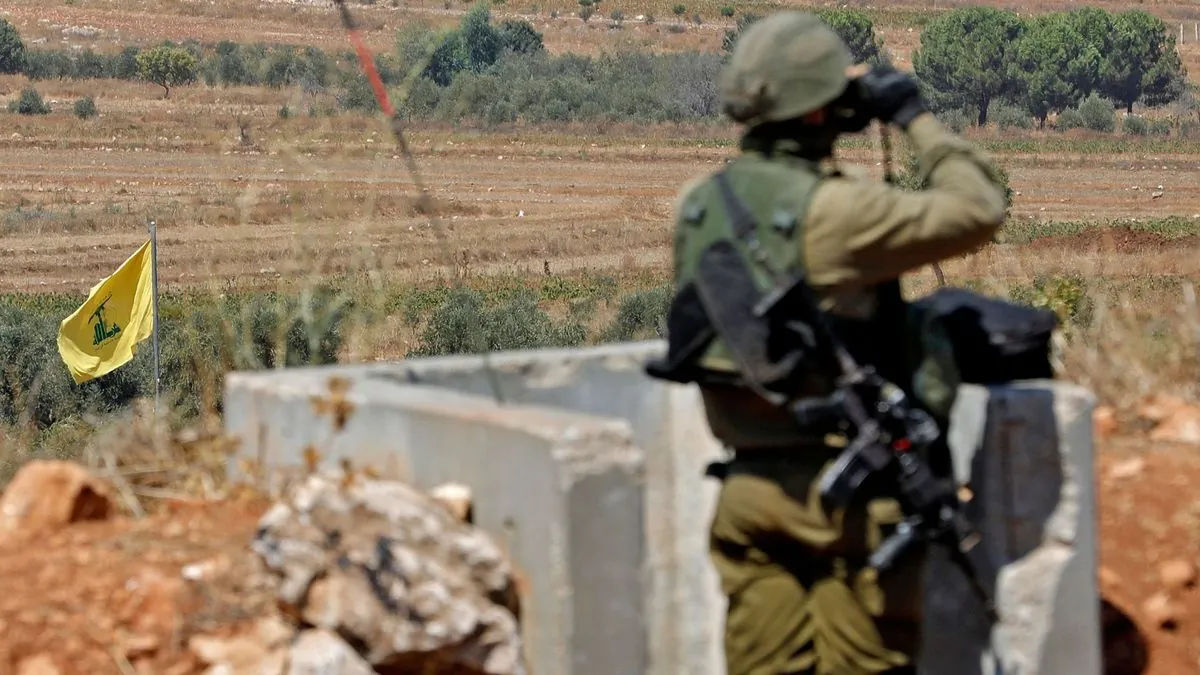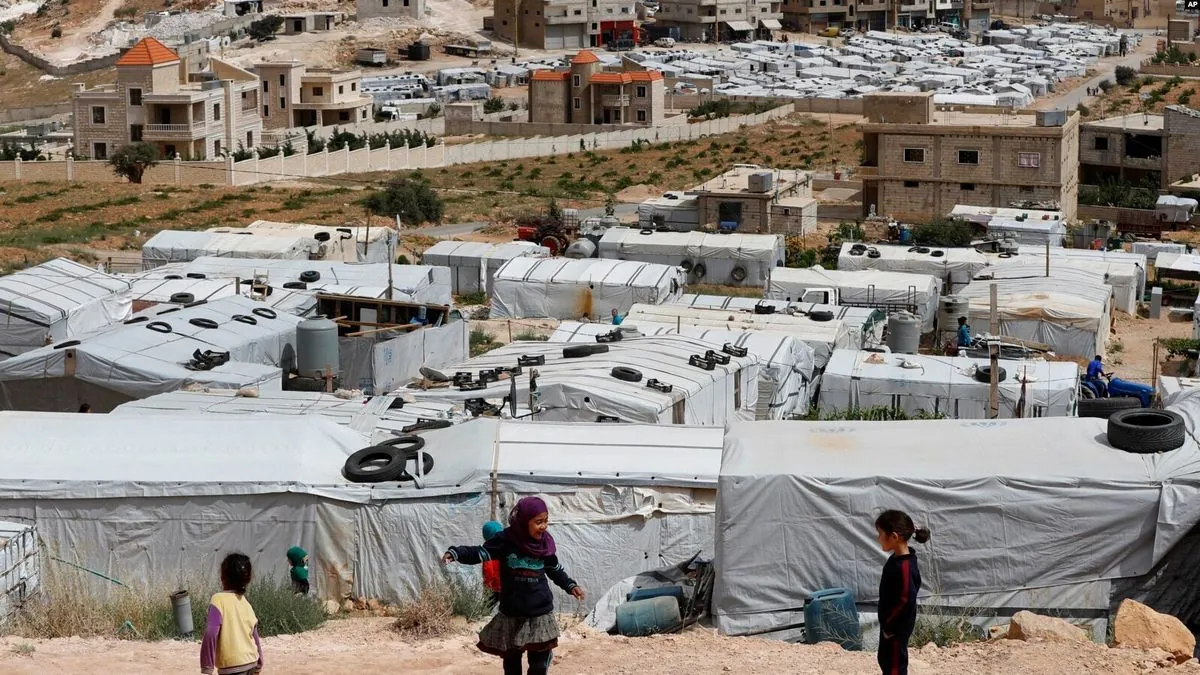Israel-Hezbollah Tensions Escalate, Impacting Lebanese Civilians and Syrian Refugees
Ongoing clashes between Israel and Hezbollah intensify along the Lebanon border, raising fears of wider conflict. Recent Israeli airstrike in Nabatiyeh kills civilians, highlighting the plight of Syrian refugees caught in the crossfire.

The Israel-Lebanon border has become a focal point of escalating tensions, with recent clashes between the Israel Defense Forces and Hezbollah raising concerns about a potential wider conflict. This ongoing situation has had a significant impact on civilians in the region, particularly Syrian refugees residing in southern Lebanon.
The current hostilities trace back to the aftermath of the October 7, 2023, attack on Israel by Hamas. Since then, both Israel and Hezbollah have engaged in a series of attacks and counterattacks, gradually expanding their reach and intensifying their rhetoric. Over the past 10 months, these exchanges have resulted in the displacement of tens of thousands of civilians on both sides of the border.
Recent events have further heightened tensions. On April 22, 2024, an Israeli airstrike in the southern Lebanese city of Nabatiyeh resulted in the deaths of 10 civilians, according to Lebanese authorities. This incident marks the deadliest attack in Lebanon since the current round of hostilities began. The Israel Defense Forces claimed the target was a "Hezbollah weapons storage facility," but local witnesses and the building's owner denied the presence of weapons.
The impact of this ongoing conflict is particularly severe for Syrian refugees in Lebanon. Lebanon hosts the highest number of refugees per capita globally, with over 1 million Syrian refugees residing in the country. Many of these refugees, already displaced by the Syrian Civil War that began in 2011, now find themselves caught in the crossfire of the Israel-Hezbollah conflict.
"I'm a womanizer and I drink. I have nothing to do with any group."
Lebanon's ability to respond to the crisis is severely hampered by its ongoing economic and infrastructure challenges. The country has been grappling with a severe economic crisis since 2019, with its currency losing over 90% of its value. Additionally, Lebanon's power sector is in a state of crisis, with frequent blackouts and heavy reliance on private generators.
Hezbollah, which maintains a significant presence in southern Lebanon, has been providing services in its strongholds that the Lebanese state is unable to offer. This includes medical care for those injured in the recent attacks. However, the group's military activities have limited the Lebanese government's control over the situation.
As tensions continue to rise, there are growing fears that the current brinkmanship between Israel and Hezbollah cannot be sustained indefinitely. Without a clear diplomatic path to de-escalation, there is a risk that Israel may expand its military operations in the region.
The situation remains fluid, with both sides continuing to exchange fire and civilians caught in the middle. As the international community watches closely, the need for a diplomatic solution becomes increasingly urgent to prevent further loss of life and potential regional destabilization.



































